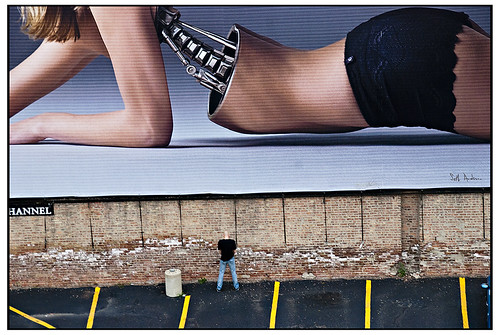Blog rules have, apparently, changed.

– Blogger or flogger? The Federal Trade Commission is taking a tougher line on bloggers who accept cash or gifts to tout a company’s products or services.
Under revised rules announced Monday, the FTC will require bloggers and celebrities to clearly state when they receive cash or “payment in kind” for endorsing a company’s products or services.
The changes, adopted on a 4-0 vote, are the first revisions to federal guidelines on endorsements and testimonial advertising since 1980.
Connections between advertisers and endorsers must be disclosed under the revised guidelines. The FTC said the stricter disclosure will apply to comments on talk shows, blog posts and on social media as well as in traditional advertisements.
[Click to continue reading FTC Says Bloggers Must Disclose Payments – WSJ.com]
But this policy, as reported here and in a similar NYT article, is pretty vague as to terms and definitions. How will it be enforced? Who qualifies as a blogger? Does this policy include Yelp and their pay-to-play model?
Or does the policy include low trafficked sites like your humble host? Does Amazon.com’s mildly dirty lucre qualify as “receiving cash”? Amazon pays me approximately 3% of the pre-tax price of any product that you purchase through a B12 Partners affiliate link, which reaches peaks of nearly $30 some months, but more frequently is in the single digits. Google ads, over on the sidebar, or possibly inserted into your RSS feed or daily email, pay me a few cents for every click-through, which also adds a few dollars to my bank account every month. I pay more for my website than I make, but I’m not doing it for money, I’m doing it for other reasons.
Other than that, B12 Solipsism has not received squat from any product I’ve mentioned, any person I’ve praised or ridiculed, or any event I’ve mentioned. Now and again, someone will suggest a topic to me, but most of the time, I just ignore the PR pitch. Perhaps if there was financial compensation attached to the pitch, or even free tickets, I might pay attention.

Besides B12, is the new ruling akin to what television product placement law is? Which is what again? Seem to see a lot of product placement in traditional media, how is a consumer to know which news magazines are running paid-for content, and which are not? How about Congressional leaders? Can the FTC or comparable governmental agency place disclaimers, perhaps in a forehead tattoo form, on health industry shills like Max Baucus for instance?
The FTC Guide, as currently written, seems woefully unenforced. Nearly all of the Sunday Talking Head shows seem to skirt the endorsement guidelines. Will that change too?
For purposes of this part, an endorsement means any advertising message (including verbal statements, demonstrations, or depictions of the name, signature, likeness or other identifying personal characteristics of an individual or the name or seal of an organization) which message consumers are likely to believe reflects the opinions, beliefs, findings, or experience of a party other than the sponsoring advertiser. The party whose opinions, beliefs, findings, or experience the message appears to reflect will be called the endorser and may be an individual, group or institution.
(c) For purposes of this part, the term product includes any product, service, company or industry.
(d) For purposes of this part, an expert is an individual, group or institution possessing, as a result of experience, study or training, knowledge of a particular subject, which knowledge is superior to that generally acquired by ordinary individuals.
[Click to continue reading FTC GUIDES CONCERNING USE OF ENDORSEMENTS AND TESTIMONIALS IN ADVERTISING ]

Anyway, we’ll probably read more about this in the future, but B12 Solipsism readers can sleep easy tonight knowing that we are not paid blogger shills , ,
Footnotes:





























